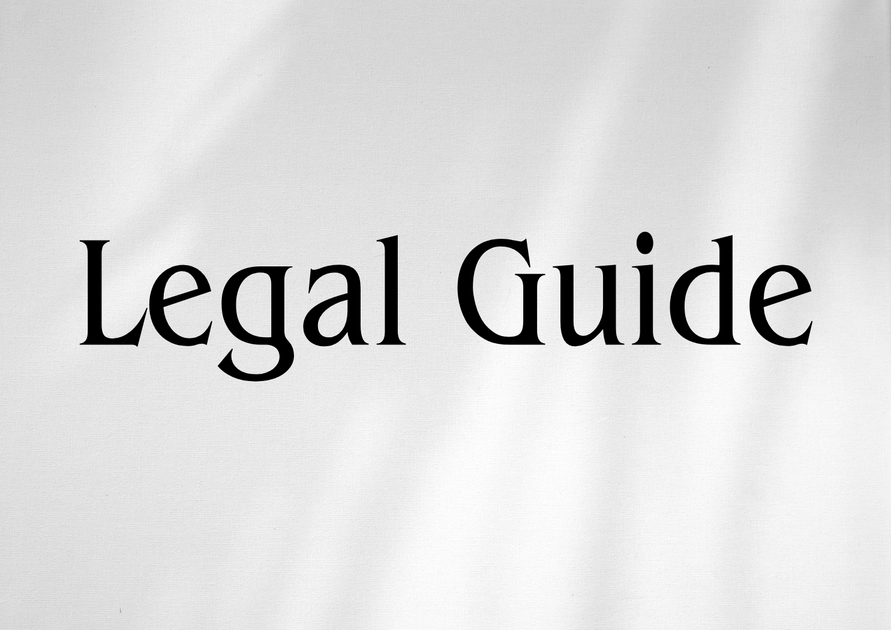Introduction
As Qatar continues to establish itself as a dynamic hub for international business and trade, understanding the framework governing agency and distribution agreements within its jurisdiction is of critical importance for companies operating across the GCC—especially UAE-based enterprises seeking to expand or collaborate with Qatari partners. The landscape for commercial agency and distribution is shaped by unique legislative provisions, regulatory authorities, and evolving judicial approaches. For UAE corporations active in the region, aligning contractual strategies with the nuances of Qatari law can be decisive for commercial success, compliance, and long-term risk management.
With reference to recent legal reforms, comparative developments in UAE federal law, and the interconnectedness of Gulf markets, this consultancy-grade analysis will demystify the regulatory environment for agency and distribution agreements in Qatar. It presents actionable insights for C-suite executives, in-house counsel, and legal professionals, helping them navigate the complexities, avoid legal pitfalls, and optimise cross-border expansion into or from Qatar. This article draws from official Qatari, UAE, and GCC legal sources, ensuring that businesses are equipped with authoritative and up-to-date information.
Table of Contents
Overview of Qatari Agency and Distribution Law
Definitions and Key Concepts: Agency and Distribution under Qatari Law
Statutory and Regulatory Framework: Qatari Law, UAE Comparisons, and Recent Changes
Contract Formation and Registration Requirements
Obligations and Rights of Principals and Agents/Distributors
Termination, Renewal, and Compensation: Strategic Considerations
Risks of Non-Compliance and Compliance Strategies for UAE Businesses
Case Studies & Practical Scenarios
Best-Practice Recommendations for UAE Companies in Qatar
Conclusion and Forward Outlook
Overview of Qatari Agency and Distribution Law
Qatar’s legal regime for commercial agency and distribution agreements is primarily governed by Law No. 8 of 2002 (Commercial Agents Law) and relevant provisions within the Qatari Commercial Code (Law No. 27 of 2006). These frameworks stipulate the conditions under which foreign companies, including those domiciled in the UAE, can market, distribute, or sell products and services within Qatar by engaging Qatari agents or distributors.
The statute provides for exclusive rights, registration obligations, protection of agents against arbitrary termination, and dispute resolution protocols. These regulations are enforced and supervised by the Qatari Ministry of Commerce and Industry, which manages the Commercial Agents Register—a critical gatekeeper for foreign enterprises seeking local representation.
Recently, several GCC-wide developments have impacted cross-border agency and distribution practices, with new UAE agency reforms (viz. Federal Law No. 3 of 2022 regulating Commercial Agencies) influencing best practices for structuring agreements that comply both with Qatari law and parallel UAE standards.
Definitions and Key Concepts: Agency and Distribution under Qatari Law
What is a Commercial Agency?
Under Article 2 of Qatari Law No. 8 of 2002, a commercial agency is defined as an arrangement where a Qatari national or 100% Qatari-owned company is authorised by a foreign principal to promote, distribute, sell, or offer goods and services in Qatar, usually under exclusivity.
Key Characteristics
- Only Qatari nationals or wholly Qatari-owned companies may register as agents or distributors.
- Contracts must be in writing and duly registered with the Ministry of Commerce and Industry to be enforceable (Article 3).
- Registration grants the agent or distributor statutory protections, including exclusivity within a territory or for specific products.
Differentiation: Commercial Agency vs. Distribution
| Aspect | Commercial Agency | Distribution Agreement |
|---|---|---|
| Legal Basis | Law No. 8 of 2002 | Often falls outside direct statutory protection but relevant Commercial Code provisions may apply |
| Registration | Mandatory registration for protections | Registration not always essential, but advisable |
| Exclusive Rights | Typically exclusive by law | Depends on contract, not automatic |
| Termination Protection | Regulated; agent enjoys statutory compensation rights | Dependent on contract terms |
| Eligibility | Qatari nationals/100% Qatari entities | Often similar but less strictly enforced |
Visual Suggestion: Consider a Venn diagram illustrating the overlap and uniqueness of rights under agency and distribution frameworks to improve reader clarity.
Statutory and Regulatory Framework: Qatari Law, UAE Comparisons, and Recent Changes
Qatari Regulatory Environment
Qatar maintains a protectionist approach to commercial agency relationships, intended to support local entrepreneurship and ensure that foreign principals engage the domestic market through Qatari partners. Notably:
- Law No. 8 of 2002—Outlines definition, registration, exclusive rights, compensation, and dispute resolution for commercial agency contracts.
- Ministerial Decisions/Resolutions—Supplement procedural requirements for registration and regulation of agent conduct.
- Commercial Code (Law No. 27 of 2006)—General provisions on commercial contracts, good faith, liability, and obligations.
Key Provisions (with Legal References):
| Provision | Qatari Law Reference | UAE Law Reference |
|---|---|---|
| Exclusivity | Art 5, Law 8/2002 | Federal Law No. 3/2022, Art 8 |
| Termination Rights | Art 8–12, Law 8/2002 | Federal Law No. 3/2022, Art 9–10 |
| Registration Requirements | Art 3, Law 8/2002 | Federal Cabinet Decision No. 57/2022 |
| Agent Eligibility | Art 2–3, Law 8/2002 | Federal Law No. 3/2022, Art 6 |
| Dispute Settlement | Art 14–15, Law 8/2002 | Federal Law No. 3/2022, Art 16 |
Comparatively, recent amendments in the UAE (notably under Federal Law No. 3 of 2022 and implementing regulations in 2023–2024) have begun to relax certain exclusivity and foreign principal restrictions, impacting how UAE-based companies structure their Qatari counterpart agreements.
Why this Matters for UAE Businesses
UAE businesses expanding to Qatar must reconcile differences in registration processes, eligibility criteria, and statutory protections. Notably, what offers flexibility in the UAE may require stricter compliance in Qatar—and vice versa. Failure to appreciate these differences can expose businesses to litigation, loss of exclusivity, or regulatory penalties.
Contract Formation and Registration Requirements
Qatari Formalities for Agency and Distribution Contracts
The enforceability and regulatory protections of an agency or distribution contract under Qatari law depend heavily on formal requirements:
- Contracts must be in writing, stating the parties, scope, period, territory, and products/services covered
- Arabic language versions are required for registration (with certified translation if the original is not in Arabic)
- Registration with the Ministry of Commerce and Industry is compulsory for agency status and corresponding legal protections
- Renewal and amendments must also be registered within set timeframes (typically within 30 days of change—see Ministerial Circulars)
Failure to register may result in lack of enforceability before Qatari courts and forfeiture of statutory compensation rights.
Practical Guidance for UAE Companies
- Vet the Qatari agent’s registration status and ownership structure using the Ministry of Commerce and Industry’s Commercial Agents Register.
- Ensure contracts contain explicit provisions around exclusivity, compensation upon termination, dispute resolution, and renewal/extension terms.
- Maintain strict compliance with Arabic language and notarisation requirements to avoid administrative rejection during registration.
- Consider parallel UAE registration for twin agreements to ensure reciprocal enforceability.
Visual Suggestion: A process flow diagram illustrating the contract formation and registration workflow, from negotiation through to Ministry registration and renewal.
Obligations and Rights of Principals and Agents/Distributors
Principal’s Obligations
Under Qatari law, the principal (foreign supplier or manufacturer) must:
- Refrain from appointing multiple exclusive agents for the same territory or product line (Article 5)
- Provide necessary support, marketing materials, and product updates to the agent
- Respect exclusivity rights—imports for the territory by other channels may breach the agreement and law
- Settle compensation or indemnity for unjustified termination
Agent/Distributor’s Rights and Duties
- Pursue sales, represent the principal’s interests, and uphold promotion/marketing standards
- Enjoy exclusive selling rights (for registered agencies)
- Seek compensation for termination or non-renewal without just cause (Article 9)
- Litigate for damages in the event of principal breach or market circumvention
- Observe confidentiality, good faith, and reporting obligations as per contract and law (Article 11)
It is critical that UAE businesses understand these duties not only as contractual, but as statutory—failure to abide invites regulatory scrutiny and civil liability.
Termination, Renewal, and Compensation: Strategic Considerations
Termination Regime under Qatari Law
Terminating a registered agency or distribution agreement in Qatar is not a mere contractual act; specific statutory criteria and compensation rights apply:
- Lawful Termination: Only permissible in accordance with contract terms or for ‘justified cause’ (serious breach, gross misconduct, non-performance).
- Advance Notice: Statutory notice periods apply unless contract stipulates otherwise.
- Compensation: Agent/distributor may claim compensation for damages, lost profits, or investments made (even after expiry or non-renewal), unless just cause is proven (Article 9, Law 8/2002).
- Dispute Resolution: Courts and the Ministry of Commerce and Industry play pivotal roles in dispute adjudication; amicable settlement is mandatory prior to court action.
Comparison Table: Termination Protections (Qatar vs UAE, 2025 updates)
| Feature | Qatar (Law 8/2002) | UAE (Federal Law 3/2022) |
|---|---|---|
| Right to Compensation | Statutory, unless just cause | Now subject to contractual agreement but court supervision for unjustified terminations |
| Notice Period | Typically 2–6 months, as per contract/law | As per agreement or minimum statutory requirements (can be waived if agreed) |
| Grounds for Termination | For breach or justified cause only; renewal often automatic | Expanded grounds, but protection remains for exclusive agencies |
| Non-Registered Agreements | No statutory protection | Limited protection, mainly based on contract |
Clearly, UAE companies must approach termination or non-renewal in Qatar with legal caution, ideally negotiating explicit contractual ‘just cause’ definitions and compensation limits.
Risks of Non-Compliance and Compliance Strategies for UAE Businesses
Principal Legal Risks
- Invalid Contract: Unregistered or non-compliant agreements are unenforceable before Qatari courts; agents lose protections and principals forfeit market assurances.
- Financial Liability: Statutory compensation and damages for wrongful termination can be substantial; historical cases in Qatar have seen compensation awards in excess of several million Qatari Riyals.
- Operational Disruption: Regulatory suspension of business licences or product imports pending dispute resolution.
- Reputational Risk: Public disputes or regulatory action can affect cross-GCC reputation and market access.
Compliance Strategies
- Maintain ongoing dialogue with Qatari regulatory authorities, securing up-to-date guidance on agency registration and renewals.
- Engage bilingual legal counsel to draft bespoke agency/distribution contracts, specifically adapted to current Qatari and relevant UAE legislation.
- Implement regular compliance audits—map contractual agreements against Ministry-register data annually or after major regulatory changes.
- Negotiate clear dispute resolution mechanisms (e.g., arbitration, mediation), backed by local enforceability assurances.
- Train senior management on the distinctions between agency and distribution to avoid accidental misclassification of contractual relationships.
Visual Suggestion: A compliance checklist or infographics displaying the most common compliance gaps/Qatari registration requirements for foreign companies.
Case Studies & Practical Scenarios
Case Study 1: Termination Dispute with UAE Principal
A UAE-headquartered electronics manufacturer appointed a Qatari exclusive agent in 2017. Citing falling sales, the principal sought to terminate the contract after four years, without registering ‘just cause’ or agreeing compensation. The agent lodged a claim with the Qatari Ministry of Commerce and Industry, which mediated unsuccessful negotiations and referred the matter to the Commercial Court. The court awarded substantial compensation to the agent based on lost commissions, brand investment, and inventory costs—underscoring that market downturns rarely satisfy the ‘just cause’ standard without a clear contractual basis.
Case Study 2: Registration Oversight
A major UAE-based healthcare supplier entered a distribution deal with a leading Qatari retailer, but neglected to register the agreement. When the relationship soured, the distributor found itself unable to enforce exclusivity or seek compensation, as Qatari statutory protections only applied to registered, written contracts. This resulted in substantial market losses and triggered a costly renegotiation, highlighting that administrative formalities are not merely technicalities.
Practical Scenario: Parallel GCC Rollouts
Consider a UAE conglomerate launching a new home appliance line in both the UAE and Qatar, engaging a single distributor group. While the UAE entity could negotiate softer exclusivity or termination rules under new agency law provisions, its Qatari deal required strict statutory compliance, Arabic registration, and explicit definition of compensation triggers. The optimal legal solution involved drafting parallel forms—one for each jurisdiction—aligned with respective codes, allowing commercial symmetry but regulatory distinction.
Visual Suggestion: A penalty comparison chart showing statutory remedies (i.e., compensation, injunctions) available in Qatari courts for various breaches by either party.
Best-Practice Recommendations for UAE Companies in Qatar
- Customise Local Agreements: Avoid using generic GCC-wide templates; adapt for Qatari law nuances and register each agreement in-country.
- Define Exclusivity and Territory: Specify product lines and geographic scope; ambiguity may void rights under Qatari law.
- Mitigate Termination Risk: Negotiate clear contractual definitions for ‘just cause’ and detailed compensation formulas; secure written waivers of compensation where feasible and lawful.
- Maintain Robust Contract Management: Track renewal/expiry dates meticulously and ensure prompt Ministry notifications of changes.
- Invest in Ongoing Legal Training: Empower HR, legal, and commercial teams with updates on local law amendments—recent UAE reforms are instructive for updating Qatari strategies.
- Engage in Preventative Dispute Management: Establish proactive communication channels and designate authorized representatives for resolving issues before escalation.
Visual Suggestion: A summary infographic outlining the most effective compliance strategies and common legal ‘red flags’ in Qatari agency arrangements.
Conclusion and Forward Outlook
Qatar’s commercial agency and distribution framework remains a cornerstone for non-Qatari businesses seeking secure and compliant entry into its vibrant marketplace. While recent UAE legal reforms provide instructive parallels, Qatar’s distinctive approach—prioritising registration, exclusivity, and statutory compensation—necessitates bespoke legal strategies for cross-border collaborations. UAE-headquartered corporations must approach Qatari partnerships with heightened diligence, balancing commercial aspirations with local compliance and relationship management.
Emerging regulatory convergence in the GCC promises greater legal certainty, but for the foreseeable future, the best results will accrue to those enterprises that tailor their agreements with rigorous local expertise, invest in compliance infrastructure, and foster transparent, mutually beneficial partnerships.
To remain proactive, clients are advised to:
- Monitor ongoing Qatari and broader GCC legal updates and adapt internal policies accordingly.
- Work with specialised legal counsel well-versed in both UAE and Qatari agency regimes.
- Maintain a culture of compliance that extends from corporate leadership to on-the-ground commercial teams.
For further consultancy or to review your current agency/distribution contracts in light of Qatari law and recent UAE legal updates, contact our team of regional legal experts today.




